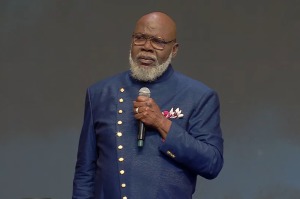Church Reassesses Approach to Death Penalty After Members Killed
The atmosphere at a United Methodist church in Connecticut known for its outspoken opposition against capital punishment changed after the type of people they were striving to protect killed members from their own congregation.
Before the acts committed by two men left three church members dead, attendants of the United Methodist Church in Chesire were largely opposed to the death penalty.
The church's current and recent pastors all opposed capital punishment. The church has also sponsored adult education classes that promoted the "restorative justice." Furthermore, church members attended a vigil to protest the execution of a Connecticut prisoner two years ago.
However, when tragedy struck closer to home, the church reexamined its approach to rallying against the death penalty.
Back in July, two men broke into the home of a family that was very active and popular within the church. Jennifer Hawke-Petit, 48, was strangled and her two daughters, Hayley, 17, and Michaela, 11, died from a fire set by the intruders, according to police. William Petit, the husband and father of the victims, survived.
"I'm treading lightly out of respect for the Petit family," said the church's pastor, the Rev. Stephen E. Volpe, according to the New York Times. "I do not feel we, in this church, ought to make this tragedy the rallying cry for anything at this point."
Church members have also canceled plans to invite a prominent death penalty opponent to address the congregation.
Many have questioned whether Hawke-Petit opposed the death penalty, hoping that an answer would provide guidance on how the congregation should handle the matter.
A handful of members say they think Hawke-Petit was among those at the church that signed a Declaration of Life, which states a person's opposition to capital punishment and asks that prosecutors, in the event of the person's own death in a capital crime, do not seek the death penalty.
"She was a nurse and she would not cause harm to anyone," said Lucy Earley, a congregant who handled the declarations from members at church.
But prosecutors say Hawke-Petit's position on capital punishment would not affect the enforcement of the law.
The congregation has also wondered whether William Petit, a physician, would oppose or support the death penalty in this case.
A friend and church member said that after meeting with Petit, he felt the doctor supported the execution of the two suspects if found convicted.





























